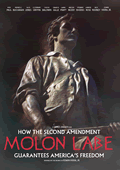WOMAN FIGHTS TO STOP GOVERNMENT FROM KILLING ORPHANED DEER
By
Sarah Foster
Posted 1:00 AM Eastern
July 2, 2015
© 2015
NewsWithViews.com
CHITTENANGO, N.Y. – The New York Department of Environmental Conservation (DEC) is forcing a state-licensed wildlife rehabilitator, to make a heartbreaking decision: either kill two female white-tailed deer she has cared for since they were babies, or turn them over to the DEC, one to be euthanized, the other to be euthanized or perhaps released in a remote area far from the 12-acre farm in central New York, that is the only home she has ever known.
 Cindy
McGinley, 54, was originally given until June 30 to let the department
know what she decided and whether she had carried out her orders. A
brutal choice, one that she and others argue is not only cruel but completely
unnecessary. Both deer are healthy, strong, well-cared for, and happy.
Cindy
McGinley, 54, was originally given until June 30 to let the department
know what she decided and whether she had carried out her orders. A
brutal choice, one that she and others argue is not only cruel but completely
unnecessary. Both deer are healthy, strong, well-cared for, and happy.
When she found herself unable to raise media interest in her situation, McGinley launched a Facebook page, “ Save Deirdre and Lily,” and started a petition at Care2 that has drawn over 142,000 signatures in less than a week from countries in Europe and as far away as India, South Africa, Australia, and Turkey.
“Please
sign my petition to help these two does live out what is left of their
natural lives in the safety and comfort of their home, where they are
loved and cherished, by demanding that the DEC reverse its decision
and grant my  License
to Possess,” she begs. [Note: The link to the petition is on the
Facebook page.]
License
to Possess,” she begs. [Note: The link to the petition is on the
Facebook page.]
In a desperate, stop-the-clock action, McGinley and her attorney on Monday filed a request for a temporary stay order, causing the DEC to shelve whatever plans were in the works for that day. On Wednesday, she was happy to report on her Facebook page:
WOO-HOO!!! Madison County Supreme Court Justice Don Cerio signed the Order to Show Cause and Temporary Restraining Order!!! The girls are safe for now!!! Still going to be long uphill battle, I fear, but at least we won the temporary stay order.
Thank you and keep signing and sharing! We aren't out of the woods yet by a longshot, but YOU are making a difference!!! [Emphasis added by NWV]
Hoping to spur gubernatorial action, on Tuesday she traveled to Syracuse and presented a disc with 130,000 downloaded signatures to Gov. Andrew Cuomo’s local office. Over 15,000 have poured in since.
It’s not that McGinley refuses to euthanize animals. Licensed since May 2007, there have been times when a rescued animal was suffering or could not be restored to health, and she faced the grim task of putting it down. But she has successfully rehabilitated many others on her farm, releasing them back to the wild as required by the DEC, but motivated as well by her own belief that wild creatures should live wild.
“I obtained my license so that I could legally heal and release wildlife that may be on my farm and in my surrounding neighborhood, which I have been doing for eight years,” she states in a press release.
McGinley maintains that these two does are special cases. Each is challenged in a different way, and neither could survive in the wild. The youngest of the pair is blind; the older could possibly make it but has never fully recovered from the trauma of losing her mother shortly after her birth and subsequent imprinting with McGinley.
Yet despite their disabilities, or perhaps because of, them, the two have become valuable assistants in McGinley’s work as a consultant in the mental health/wellness field.
Sound strange? It’s not really. McGinley is involved in a field of psychotherapy called Equine- Assisted Therapy (EAT), described at Wikipedia as “a treatment that includes equine activities or an equine environment to promote physical, occupational, and emotional growth in persons with attention deficit hyperactivity disorder (ADHD), anxiety,” and a host of other physical and mental disorders including Down syndrome, posttraumatic stress disorder, and drug and alcohol addiction..
This use of horses to aid in physical and mental healing is comparable to the use of dogs and cats in hospitals and hospices. They are therapy animals.
McGinley does not hold herself out as a licensed psychotherapist, though she is working towards becoming one through graduate work on at an online university. Meanwhile, she considers herself a coach. In her practice she has four therapy horses – assisted now by the two does, a service they provide by simply being themselves.
 Meet
the “girls”: Deirdre and Lily
Meet
the “girls”: Deirdre and Lily
Deirdre, the older doe, came into McGinley’s life in June 2010. A neighbor phoned saying he had a fawn he wanted to bring to her, whose mother had been killed by a car. She agreed to take the tiny atom of life. It was something she had done often before, but this time was different.
The fawn was just a day or two old, still had her umbilical cord stump, and weighed barely five pounds. McGinley had never seen a fawn so young, and says she was totally unprepared for what happened, describing the experience on her website, Black Horse Consulting:
Oh, I had everything I could possibly need for its immediate comfort: goat milk replacer, hay bedding, a heat lamp for warmth, baby wipes, three different sizes of bottles and nipples. Still, I was not prepared.
McGinley
named her Deirdre, after the great heroine of Irish legend --- a  woman
of sorrow, because she saw deep sorrow in the fawn’s eyes. The
four-legged Deirdre required a lot of attention -- hand feeding with
special deer formula, medications, heat lamp, and a little Chihuahua
jacket for warmth in her debilitated state, plus close observation and
care for at least two months."
woman
of sorrow, because she saw deep sorrow in the fawn’s eyes. The
four-legged Deirdre required a lot of attention -- hand feeding with
special deer formula, medications, heat lamp, and a little Chihuahua
jacket for warmth in her debilitated state, plus close observation and
care for at least two months."
It wasn’t easy, but Deirdre survived, becoming “a sort of mascot of the farm, everyone’s darling.”
Unfortunately, the doe had “imprinted” herself on her rescuer, a phenomenon wildlife rehabilitators are required to guard against and McGinley always does. However, Deirdre was an exception.
“New York State requires that proper rehabilitative care be conducted in a manner that precludes imprinting of wildlife on humans,” McGinley wrote in correspondence to the DEC. “I know that. It was not possible in this case. She was very young … this fawn imprinted on me the second she saw me. Nonetheless, I was dedicated to rehabilitation as required by my license.”
Psychological imprinting, as described by MedicineNet, is: “a remarkable phenomenon that occurs in animals, and theoretically in humans, in the first hours of life. The newborn creature bonds to the type of animals it meets at birth and begins to pattern its behavior after them. In humans, this is often called bonding, and it usually refers to the relationship between the newborn and its parents.”
That is what happened to Deirdre. With food and care she grew strong, but because of the early imprinting she identified McGinley as her “Mommy” and never developed the skills necessary for survival outside the farm.
“Every summer I evaluated her ability to be released, but I have finally come to realize that she will never be successful in the wild,” McGinley says.
Lily's
story is different. She was about three months old when she was
brought to the farm last summer, already learning how to be a deer.
Her mother had apparently been hit by a car on a nearby thru-way and
her little one had  wandered
away from the road into the adjacent community.
wandered
away from the road into the adjacent community.
Emaciated, dehydrated, her face incrusted with mites, by the time McGinley was called on to help, the fawn was dying. With proper care she began to grow strong and move about, but unfortunately, it became evident that she was blind; a condition caused by a thiamine deficiency not uncommon with fawns and goat kids that experience a severe dietary change, as Lily had experienced.
Both McGinley and her veterinarian hoped that with thiamine injections, Lily would regain her sight and be a candidate for returning to the wild. That didn’t happen, and McGinley realized that she needed to obtain a special permit that would allow her to keep these two deer. They were not candidates for release into the wild, but they were proving themselves perfect for therapy and teaching people about wildlife and the environment.
Trained as a teacher and with a second degree in equine management, McGinley has been developing her facility since 2011 as an education site for the benefit of her clients, the public and the animals in her care. The two does are very much part that effort.
Indeed, Deirdre is already “an ambassador for her species as an integral part of the wildlife education program at Rivendell Farm & Sanctuary,” she explained in correspondence with the DEC.
Believing that non-releasable wildlife, in licensed sanctuaries, could serve an important role in educating and raising public awareness – in late April she applied to the DEC for a “Special License to Collect or Possess for Education/Exhibition” (LCPEE).
Application Denied
McGinley didn’t hear a word from the department for six weeks. Then, on June 18 she received notice that her application for a Special License was denied, and giving her less than two weeks to carry out the orders.
A letter signed by Joseph Therrien, Special Licenses Unit, set forth the options, at the same time barring the door against the possibility of relocating the deer to another sanctuary:
“At this time, your possession of this animal [Deirdre] is illegal and in violation of your license conditions,” he wrote. “The Department is not entertaining the transfer of this deer for long term possession at this time. The blind fawn from 2014 was never a candidate for release to the wild and should have been properly euthanized shortly after coming into your possession.”
Re. five-year-old Deirdre: McGinley can lock her out of the facility and not allow her to return, euthanize her, or turn her over to the DEC for release in a remote location. Re. Lily, the year-old blind doe, she can be euthanized or handed over to the DEC and they’ll do it.
“There are only two options available for the one year old doe: 1) euthanize the animal as non-releasable: 2) Surrender the deer to DEC,” Therrien stated.
McGinley acted promptly. On June 20, two days after receiving the Notice of Application Denial, she sent a letter to the appropriate department within the DEC requesting either a reversal of the denial or a hearing where she could present her case. At stake is her work not only as a wildlife rehabilitator, but as an educator and consultant.
“I have seen first-hand the power animals have on troubled humans,” she wrote. “The facility will provide a win-win for humans and animals: a chance for environmental and wildlife education and help for humans who need to learn trust and acceptance through these creatures. Wildlife, adults, and children will all benefit. It was to this end that I applied for a Special License.”
She further explained why their continued existence is important not only to the deer themselves but to her work with the public, arguing that exceptions should be made to rules that are basically desirable, but at times unnecessarily restrictive.
These two does are the exceptions, and their value for the education of visitors to Rivendell Farm Sanctuary is priceless. Please give me the chance to give them a job to do that will save their lives, allow them to remain in their home, and at the same time cause no harm to anyone. Higher-level reasoning dictates that common sense must prevail over the letter of the law in this matter.
McGinley told NWV she is still waiting for a response from the DEC regarding her request for a hearing or news that the decision to deny the special license has been reversed.
A word from the DEC
In response to questions posed by NWV in an e-mail exchange, a spokesperson at the DEC’s media center said that McGinley was denied her application for a Special License “based on state regulations restricting possession of white-tailed deer and the risk of Chronic Wasting Disease and other disease and parasites that may impact the wild deer population.”
However, a concern about CWD is not mentioned in the Notice of Application Denial sent to McGinley, who has made it abundantly clear that her does do not and will not interact with wild deer.
Whose deer are these?
James Burling is the Director of Litigation and principal attorney at Pacific Legal Foundation (PFL), a non-profit public interest law firm based in Sacramento, California, that litigates in the areas of property rights, limited government and economic freedom.
In a phone conversation Burling explained to NWV the principle behind the actions by the DEC.
In a nutshell: government owns the wildlife in the area of its jurisdiction. There’s nothing new here, Burling said. The principle goes back centuries. It is based in the Common Law and been upheld through numerous court rulings.
Burling added that PLF gets involved in issues of state versus federal government jurisdiction, but in a situation involving wildlife, the basic principal that some entity of government is ultimately the owner is not something that could be easily challenged because it is such a well-established principle.
|
|
As ultimate owner, he said, the government can and does grant individuals and groups the right to carry out specific actions which it denies to others. For instance, by issuing hunting licenses it authorizes certain individuals to kill particular species of wildlife.
Others are allowed to possess wild animals for exhibits or educational purposes. That is what McGinley is trying to obtain: A special license for educational purposes.
This sad situation, though the state has the power to act as it is doing, strikes Burling as ridiculous and “over-the-top.”
“I think it’s absolutely insane that anyone in government is concerned about a woman in rural central New York who has two therapy deer,” he exclaimed. “The bureaucrats need to get a life. And you can quote me on that.”
© 2015 NWV - All Rights Reserved












 Share
This Article
Share
This Article




